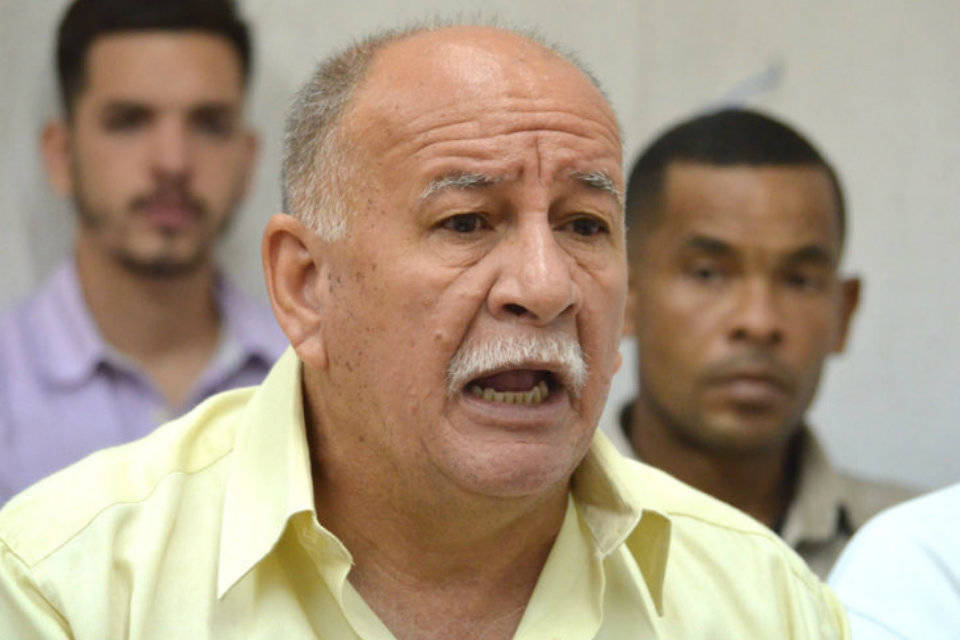My name is Edgar Albarrán, I am 27 years old, I am 5’9”, I am an accountant and I was born in Maracaibo, but I live in Caracas. I am a comedian, comedy writer, meme maker, single mother, best friend, and a human being. I am currently co-editor of El Chigüire Bipolar, a Venezuelan satirical news portal.
When I was studying high school I realized that I liked both laughing and making people laugh. I always sought the attention of others for doing or saying things that seemed funny to me. I never spoke if I didn’t have anything funny to say. Coming from a person as introverted as me, that seemed totally normal to me because I was terrified of talking to others.

I never knew what I wanted to study, nobody teaches you that, everyone gives you their vague idea of what they think you should do. I wanted to make people laugh but there is no degree in college for that. In the end, I chose accounting because it seemed like something that could help me make money. That was what I thought of, money. I know we should all think about money, but in the end, I think the best way to earn money is by doing what you like.
I thought I liked my career but all my jobs showed me the opposite. It made me a little anxious to think that I was wasting my time on something I didn’t want to do, I looked at folders, accounting ledgers, screens and wondered all the time if that was what I wanted to do. Of course, I didn’t want to. But in the end, life is not what you do, life is what you decide to do with a purpose.
I was in Colombia for a while, there I discovered that being an immigrant makes you feel negative things all the time, you feel like you do not belong to a culture, you always get defensive against any type of comment or just a dirty look, you think all the time that you make others uncomfortable just because you exist. And to that, you add precarious work, informality, the instability of being unable to make ends meet. There were many things that I worried about being an illegal immigrant. I chose not to follow the path of the hero who arrives in a country and comes up from nothing.
I got my work online, like Timmy Turner and like all those people who have an Only Fans. At that point, I started tweeting the jokes that I came up with every day while I was working at the accounting firm. More or less my routine was: 30 minutes of work, 30 minutes of Twitter. If I finished a rather tedious task, Twitter for an hour. In the mornings, all the jokes that came up to me while I was riding the bus to work, all those jokes went straight to Twitter. Those tweets or jokes reached the right people.
I do not want to tell people to do what they like to do, because it is corny, trite, cliché, and even annoying but yes, do what you like. I graduated as an accountant and the only thing it left me is that people always tell me: “So, if you’re an accountant, can I count on you making me laugh?”
I came to Caracas with the aim of becoming a comedy writer, it was what I had done for a long time as a hobby, thinking of jokes, thinking of something that made me laugh, no matter what it was, the tone, the message, if it had a purpose or not if it hurt anyone. They were rough jokes. At first, it was difficult, many texts that I sent were completely rewritten, many ideas I sent were rejected, learning to write from scratch with little experience is painful. It’s a blue-collar job, you do it every day, you think of what you did wrong, you repeat it until it works for you and your editors. With the help of all the colleagues and editors, I was learning those things that perhaps my Twitter jokes were missing. I’m not saying I’m a good writer yet, I’m still trying to become one.
Currently, I have spent three years in Caracas, I arrived at very strange times, three years seem short but in Venezuelan time they seem like fifteen. I have lived through many things: several new monetary cones until their extinction, a national blackout, hundreds of devaluations, elections where the same people always win, the use of dollars for everything, a baseball championship where the La Guaira Sharks almost won, and many goodbyes to friends I made in these short 3 years. Oh, and I forgot: a pandemic.
A pandemic in a country like Venezuela is a tragicomedy. What else can happen? The eruption of El Ávila? Godzilla coming out of Lake Maracaibo? I tell you: everything is possible in this country. Since the pandemic began, we have all learned to survive, the baseball players’ greetings are over, the hugs from Adecos are extinct and rubbing up against people on the subway is now a thing of the past. Social distancing is foreign to us, but we have learned to deal with it. We have had to stop going out, stop meeting people, do specific errands. Going to the corner store is now a pleasure.
My life now is quite monotonous, working, watching TV, going to sleep, and repeating everything the following day. Being aware that a virus can harm the people you live with has made me more responsible for my actions. Quite an adult right? At least that’s how I want to think of this Edgar who no longer goes out to get low on the dancefloor.
Working has been different, weekly meetings became Zooms where jokes are sometimes cut, or the meetings become a bunch of people shouting their ideas. It’s pretty fuzzy at times, but we’ve gotten used to the mechanics of doing everything at home. Internally, the home office seems confusing, I don’t know what time to start working, sometimes I don’t stop working. Check-in and check-out time is confusing. I know it happens to everyone, but the office leaves its mark.
Not everything bad. In these 3 years I have learned a lot, there have been many mistakes, many difficult contexts, many new challenges, many Zoom meetings with coworkers, with friends, with third cousins who are in Peru and even with friends from school that you thought that you were never going to see again. In the end, all that closeness becomes an energy that we had lost because of migration. Having all those people who lived with you one click away. The pandemic left us something good.
Plus, I can make them laugh so they tell me again: “can I count on you making me laugh?” I hate that joke, but I don’t care if it comes from people who have been by my side.
Translated by: Pascual Díaz




